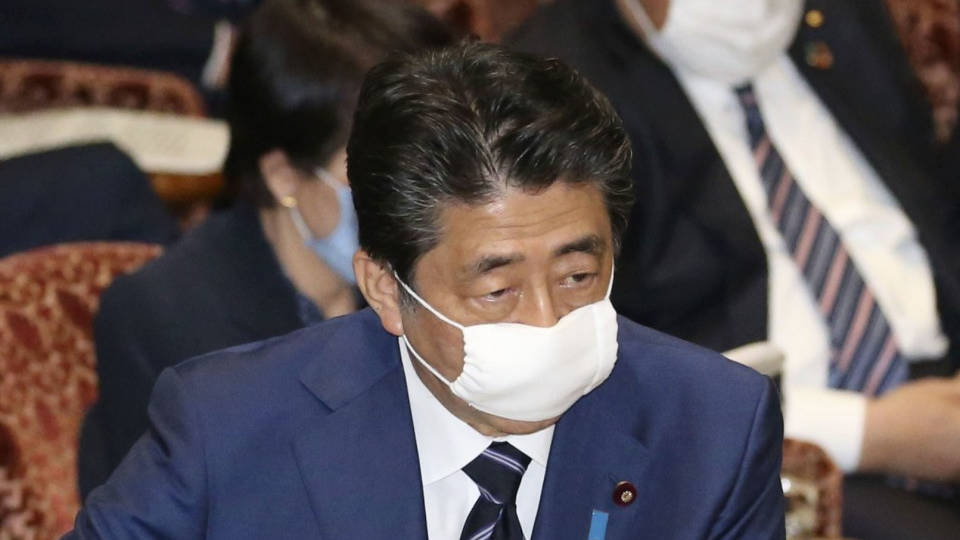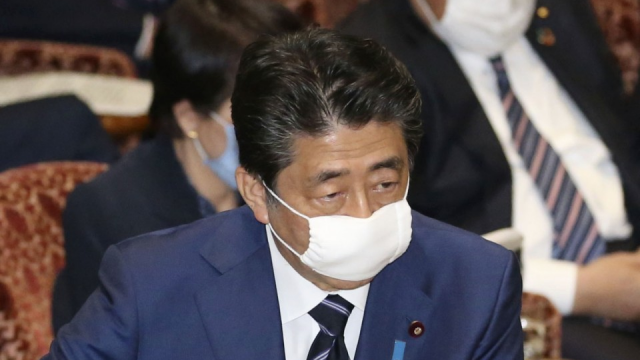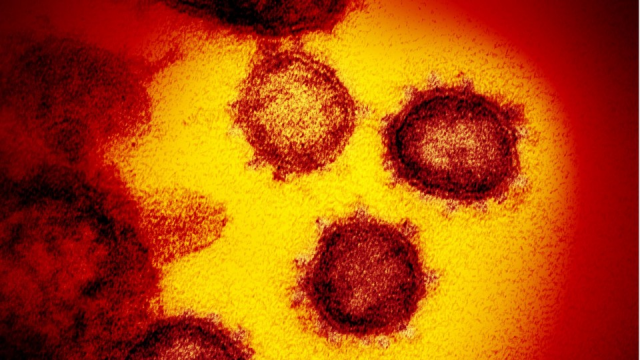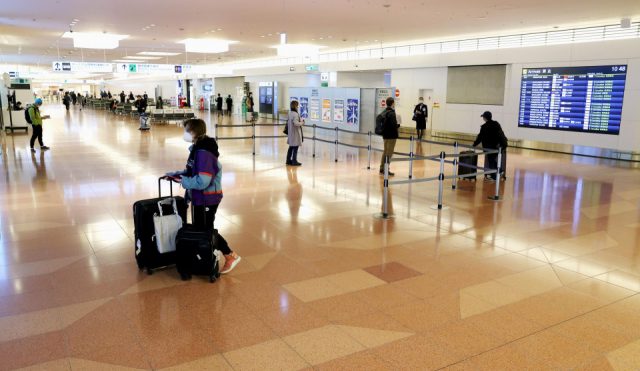Prime Minister Shinzo Abe said Thursday new coronavirus infections have not reached the point across Japan to declare a state of emergency, but the country should remain vigilant against an explosive surge.
“At this point, we have not seen infections spreading rapidly and widely across the country. We are barely holding the line,” Abe said in parliament.
“But if we lower our guard now even a little, infections can accelerate suddenly at any moment. We continue to be on the brink,” Abe said.
Abe has been cautious about making a state of emergency declaration, saying that doing so would restrict people’s rights, and first, he needs to seek expert opinions.
(Shinzo Abe)
Related coverage:
Abe mulls canceling trip to Moscow in May amid coronavirus spread
Japan to give cloth face masks to 50 mil. households to fight virus
Japan to expand entry ban to 73 countries, regions amid virus spread
Medical experts are calling for Abe to declare a state of emergency to avert the collapse of the health care system due to a potential surge in patients with COVID-19, the illness caused by the new virus that has spread rapidly from China since late last year.
“It’s critically important to prevent a sharp rise in cases in the Tokyo metropolitan area with a large population, which is at the center of economic activity,” Abe said.
On Wednesday, a government panel of experts said the health care system in urban areas, including Tokyo, is under increased strain, and steps need to be taken.
Tokyo has reported over 580 cases, by far the largest among the country’s 47 prefectures. Nearly 14 million people live in the Japanese capital.
Once a state of emergency is declared for a specific area, its prefectural governor will gain the discretion to take preventive steps. They can request residents to stay home and limit the use of schools and other facilities.




